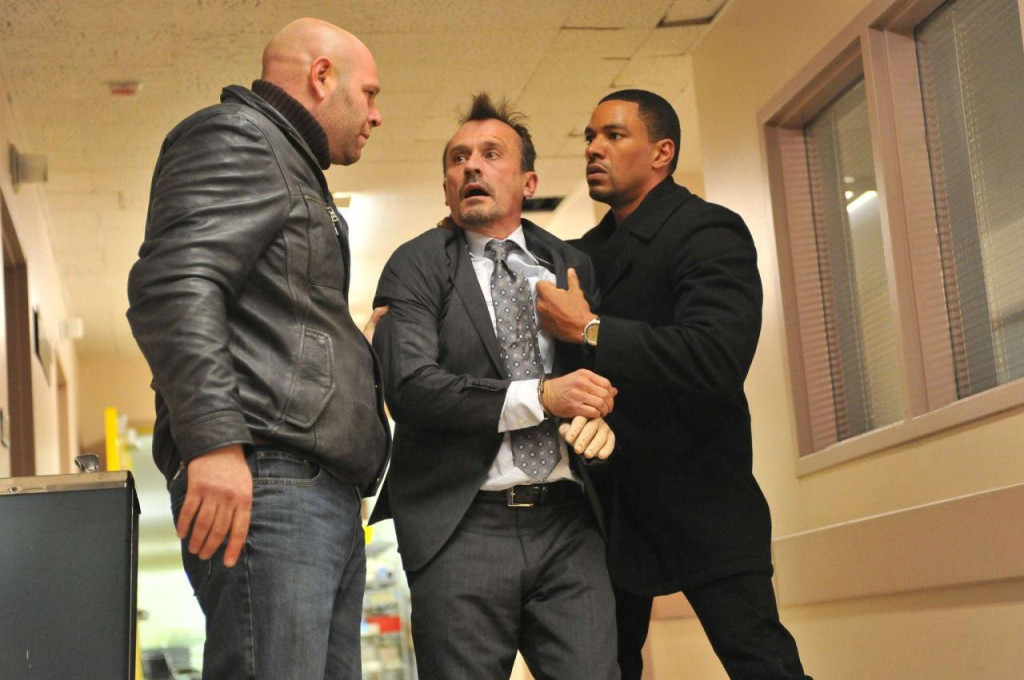
‘Vice’ film review
By Roshni Riar, Staff Writer
Adam McKay’s 2018 Vice is a wild ride. It follows the political path of Dick Cheney, who has largely been considered the most powerful and influential vice president of the United States ever.
Christian Bale is unrecognizable as Cheney, former vice president of the United States under the George W. Bush administration. Comparing photos of Bale during filming and Cheney himself, it’s hard to distinguish who is who. From the way Cheney’s mouth moves when he speaks, to his body language, Bale is fully committed to playing Cheney so accurately that I often forgot I wasn’t watching the real Cheney.
Overall, the cast is impressively stacked. The main supporting cast is an interesting mix of talent, with Amy Adams as Lynne Cheney, Sam Rockwell as former POTUS George W. Bush, and Steve Carrell as former United States Secretary of Defense Donald Rumsfeld. The makeup and prosthetics in the film are astounding, striking me as incredibly natural-looking. They help complete all of the cast’s transformations over the 40-plus years the film spans.
The film is more entertaining than I anticipated it to be, considering that half of it deals heavily with Dick Cheney’s influence and decision-making surrounding the War on Terror. I went in expecting a factual, in-depth biopic about Cheney’s rise in politics and later the White House—but that isn’t at all what I got. Surprisingly, at times it’s downright hilarious. The moments of hilarity come from constant meta, self-aware jokes, fourth wall breaks, and red herrings. A fake credit roll in the middle of the film tells the audience that the Cheney family retired from politics for good to breed golden retrievers during the Clinton administration—signalling the end of the film—only to throw us back into the story with George W. Bush asking Cheney to be his vice president. This particular moment had the audience howling during the screening I saw. It’s unexpected, much like a lot of the out-of-left-field humour that peppers the story.
The film is narrated by a fictitious Afghanistan and Iraq war veteran and honestly, it doesn’t need to be. The narrator spends much of the movie covering missing chunks in time or explaining actions that could have just been shown with equal if not more effectiveness. The fact that the narrator is a veteran of the Afghanistan and Iraq wars—a conflict that Cheney had a hand in—isn’t lost, it just doesn’t hit the mark emotionally the way I think it was intended.
The film’s composition echoes McKay’s 2015 film The Big Short in a number of ways. A story is told—an intense, shocking story—with the help of off-the-cuff humour and both historical and modern video clips spliced in between scenes. The use of random clips altered the viewing experience for me, at times taking me out of the film. It seems too aware of itself and its intention, almost feeling like a bizarre YouTube video at times. I understand that the clips are all placed into the movie for a reason—all relating to the American way of life or wars with American involvement—but there are a lot of cutaways that don’t feel particularly necessary to the story, ultimately making it feel scattered.
Intended to be a biopic on Dick Cheney’s life, the film is more amusing than informative. I walked in with a preconceived notion of who Dick Cheney is and I don’t feel like that notion was challenged or fleshed out at all. I still don’t know who he truly is, but perhaps that’s the point of the film. No one knows, which is scary to ponder considering how powerful he once was.


